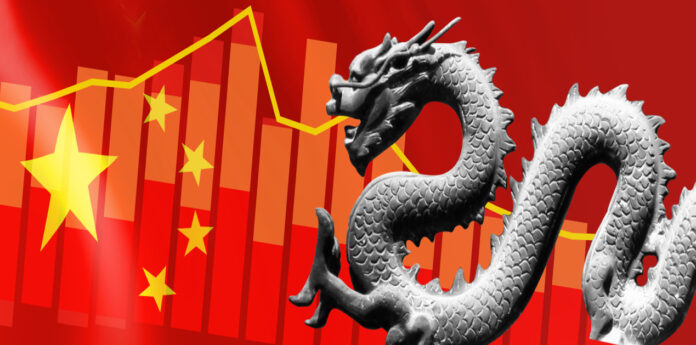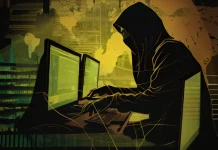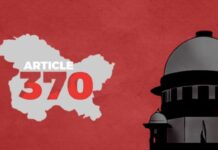After having shed its power hesitations under President Xi, most countries are coming to terms with the realization that China is not just a benign marketplace or a big factory. Using its huge forex reserves as a strategic tool, China has begun to play a more important role on the global commercial stage as an alternative source of investment and technology beyond the West. It is not timid in imposing economic sanctions on countries to achieve its own geopolitical goals.
By Prerna Gandhi
“China has deep pockets” is a guaranteed statement one gets to hear in every seminar or discussion on China. But despite its moneyed and lucrative hues, many questions arise. How is China an economic behemoth, when economists and Chinese policy makers often acknowledge the questionable health of the Chinese economy? How did China grow into the world’s largest trading nation when its market economy status is challenged in the World Trade Organization? How did China despite its unilateralism keep the economic and security domains separate in most of its bilateral and regional relations? How do Chinese companies underwrite world’s largest infrastructure program despite having the world’s highest nonfinancial corporate debt to GDP ratio? China’s economic rise has turned out to be all the more theatrical because of the weaker trajectories of its competitors post the 2008 Global Financial Crisis. From the Eurozone crisis and a deflationary Japan, to rapid technological upheaval and new regionalism, China filled in many gaps with its investment spree, infrastructure building and cheap manufacturing.
After having shed its power hesitations under President Xi, most countries are coming to terms with the realization that China is not just a benign marketplace or a big factory. Using its huge forex reserves as a strategic tool, China has begun to play a more important role on the global commercial stage as an alternative source of investment and technology beyond the West. It is not timid in imposing economic sanctions on countries to achieve its own geopolitical goals. In recent time, after Australia demanded an investigation into the coronavirus outbreak in China, Beijing imposed an 80 per cent “anti-dumping” tariff on Australian barley to the tune of 500 million dollars annually. Similarly, the African continent despite having received large share of Chinese investment, views China with a suspicious ‘neo-colonial’paradigm that seeks only Africa’s natural resources. In a landmark development, even the NATO leaders raised concerns about China’s growing influence for the first time in December 2019 at the leaders’ summit in London. The 29 member states formally acknowledged the “opportunities and challenges” posed by China’s increasing global role.
Yet, even prior to the coronavirus pandemic and US pressures, there has been an ongoing hollowing of the Chinese economy. China’s foreign debt, including US dollar debt, reached US$2.05 trillion at the end of 2019, compared to US$2.03 trillion in the previous quarter, according to China’s State Administration of Foreign Exchange. China’s Household debt rose to 54.3 per cent of China’s GDP in the last quarter of 2019 compared to 51.4 per cent in the last quarter of 20182. In China, 75 percent of the middle class falls into the lower-middle income band. Rising unemployment because of the pandemic amidst an already tough job market undermines the viability of the proposed dual circulation strategy that relies on increased domestic consumption. While mainland media had reported that the coronavirus outbreak will have a limited impact on Belt and Road projects, domestic priorities may tighten China’s deep pockets.
Further, unfulfilled commitments have led to diminishing expectations from Beijing across the globe from the Balkans to Southeast Asia. Many countries have also sought to renegotiate the perceived ‘unfair’ deals that fostered corruption and increased do Despite President Xi’s rhetoric at Davos portraying China as the champion of the liberal international order, China has undermined and disrupted the very system responsible for its progress and prosperity. The case WT/DS516/1 has beckoned disaster for the World Trade Organization and the rules-based multilateral trading system. Under Section 15 of the Chinese WTO Accession Protocol, it was stated that the non-market economy (NME) provision ‘shall expire 15 years after the date of accession’. China took this to mean that the NME methodology in calculating anti-dumping duties would not be continued beyond 10 December 2016. However, on 11 December 2016, neither the United States nor the European Union was willing to give up on the provision, as Chinese prices remained unreliable compared to other free market economies. Thus, contesting the interpretation of Section 15(d) of the Chinese WTO Accession Protocol, China on 12 December 2016 filed separate WTO cases against the US and the EU for allegedly breaking promises. In June 2019, fearing an imminent loss China simply halted the dispute at the WTO over its claim to be a market economy and lost the landmark case after the panel lapsed in 2020.
There is a wide-ranging consensus among member economies that China has not made market reforms consistent with its WTO obligations. While the Trump administration has been intensely critical, it cannot be disputed that the WTO has been superfluously accommodative of China’s “unfair” trade practices. China’s trading partners have struggled to bring cases involving dumping, discriminatory non-tariff barriers, forced technology transfer, over capacity, and industrial subsidies at the WTO. For instance, abusing domestic antitrust law is not a WTO violation as the WTO contains little international antitrust law. Then a requirement on foreign companies to license intellectual property in return for greater access to the Chinese market is not an obvious violation of any WTO rule. In February 2020, the US government decided to elevate China’s status to “developed” and cancel some of its trade benefits5. WTO agreements give developing countries special benefits and rights including longer time period for implementing agreements and commitments.
While many aspects of the Chinese economic system have come under the scanner, the dominance of the Chinese State-Owned Enterprises (SOEs) favoured by generous state supporthas been very controversial. Many countries have protested how the limitless state subsidies allow for SOEs to easily buy companies abroad, while damaging the competitiveness of their national companies in both domestic and third markets. In the 1990s, when many of these SOEs began listing on foreign stock markets, they kept their ties to the Chinese government a secret. In the business sphere, the Chinese laws of the land require that committees of senior CCP members be given a leadership position inside the halls of all public and private companies including foreign ones operating in China. Jack Ma, the billionaire co-founder of e-commerce giant Alibaba made global headlines when his CCP membership was revealed in 2018. It is heavily speculated that his membership was kept hidden in 2014, when Alibaba listed on the New York Stock Exchange. In fact, all the three founders of China’s private internet giants (Baidu, Alibaba and Tencent) are CCP members. It is only now that all the pervasive nature of the CCP and its tentacles in every corner of the Chinese economy are becoming evident.
Kevin Rivette, an executive adviser for intellectual property with Boston Consulting Group and author, with David Kline, of ‘Rembrandts in the Attic: Unlocking the Hidden Value of Patents’, stresses the importance of working out a strategy before going into China. Companies which fail to do this, he says, are setting themselves up for trouble. An associated contentious point is the forced technology transfers that are particularly intense in sectors targeted by China’s development plans. For example, China uses joint venture and other ambiguous requirements to pressure foreign automakers and aviation suppliers to transfer their core innovative technologies to Chinese partners. In 2004, Kawasaki Heavy Industries and other Japanese and European bullet-train makers transferred know-how to China’s Railways Ministry and Chinese companies. Afterward, China train makers used the technology to become powerful competitors.
In addition, China requires that foreign tech licensors assume all indemnity risks, mandating that the Chinese licensee own all improvements, and generally authorizes Chinese joint ventures to freely use the technology in perpetuity after 10 years. Though China may have reduced official mention of the “Made-in-China 2025” policy, sectors like artificial intelligence, aerospace, biotechnology, semiconductors, etc. have as many as 100 state plans guiding China’s foreign technology acquisition. In fact, for all the alleged bonhomie, Russian concern over China’s reverse engineering contributed to a rapid decline in arms sales between the two countries in the mid-2000s. Whereas China accounted for 60 per cent of Russian arms exports in 2005, the figure fell to 8.7 per cent by 201210.
Companies with operations in China could also come under greater pressure to have their cyber security preparations reviewed and certified under a draft law expected to be enforced next year. China’s draft data security law may require companies to disclose details about network security in their operations outside China. China aims to protect what it calls “important data” which, if leaked, may directly affect the country’s national security, economic security, social stability, or public health. The law published by the Standing Committee of the National People’s Congress of China is understood to be the first time that China has attempted to exercise legal authority on companies outside its jurisdiction. “China is considering allowing the law to have an extra-territorial effect that we have not seen before,” said Yan Luo, partner in law firm Covington & Burling in Beijing. The draft law is likely to change significantly between now and when it is finally enacted in 2021. Companies with operations in China can already be required to have their cyber-security operations certified by government-appointed certification bodies.
The CCP’s ideological roots and legitimacy stem from its staunch commitment to communism, while simultaneously acknowledging the benefits of a socialist market economy. Despite, western perceptions of President Xi as a reformer, his policies have only sought to boost the prominence of the party and state-owned firms even further. Landmines are different from other conventional weapons. When a war is over, the landmines stay in the ground and continue to kill – for decades.
From its ambiguous market regulations and bullying companies to toe its line to its direct investment in bridges and ports to setting up standards and funding start-ups, there is need to be more wary of China. The Chinese are in for a long power game.
Article Courtesy : www.vifindia.org












